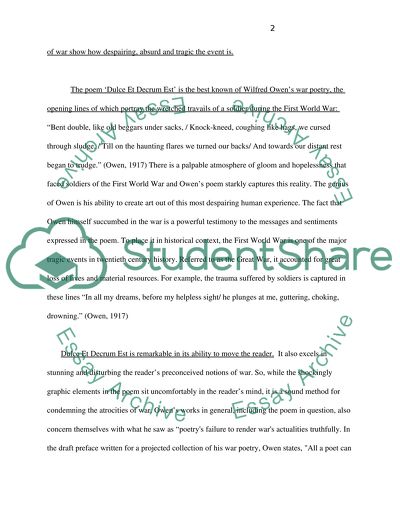Cite this document
(“Wilfred Owen's poem, Dulce Et Decrum Est and Tim O'Brien's The Things Research Paper”, n.d.)
Retrieved from https://studentshare.org/english/1463289-wilfred-owenyies-poem-ypdulce-et-decrum-esty-and
Retrieved from https://studentshare.org/english/1463289-wilfred-owenyies-poem-ypdulce-et-decrum-esty-and
(Wilfred Owen's Poem, Dulce Et Decrum Est and Tim O'Brien'S The Things Research Paper)
https://studentshare.org/english/1463289-wilfred-owenyies-poem-ypdulce-et-decrum-esty-and.
https://studentshare.org/english/1463289-wilfred-owenyies-poem-ypdulce-et-decrum-esty-and.
“Wilfred Owen's Poem, Dulce Et Decrum Est and Tim O'Brien'S The Things Research Paper”, n.d. https://studentshare.org/english/1463289-wilfred-owenyies-poem-ypdulce-et-decrum-esty-and.


